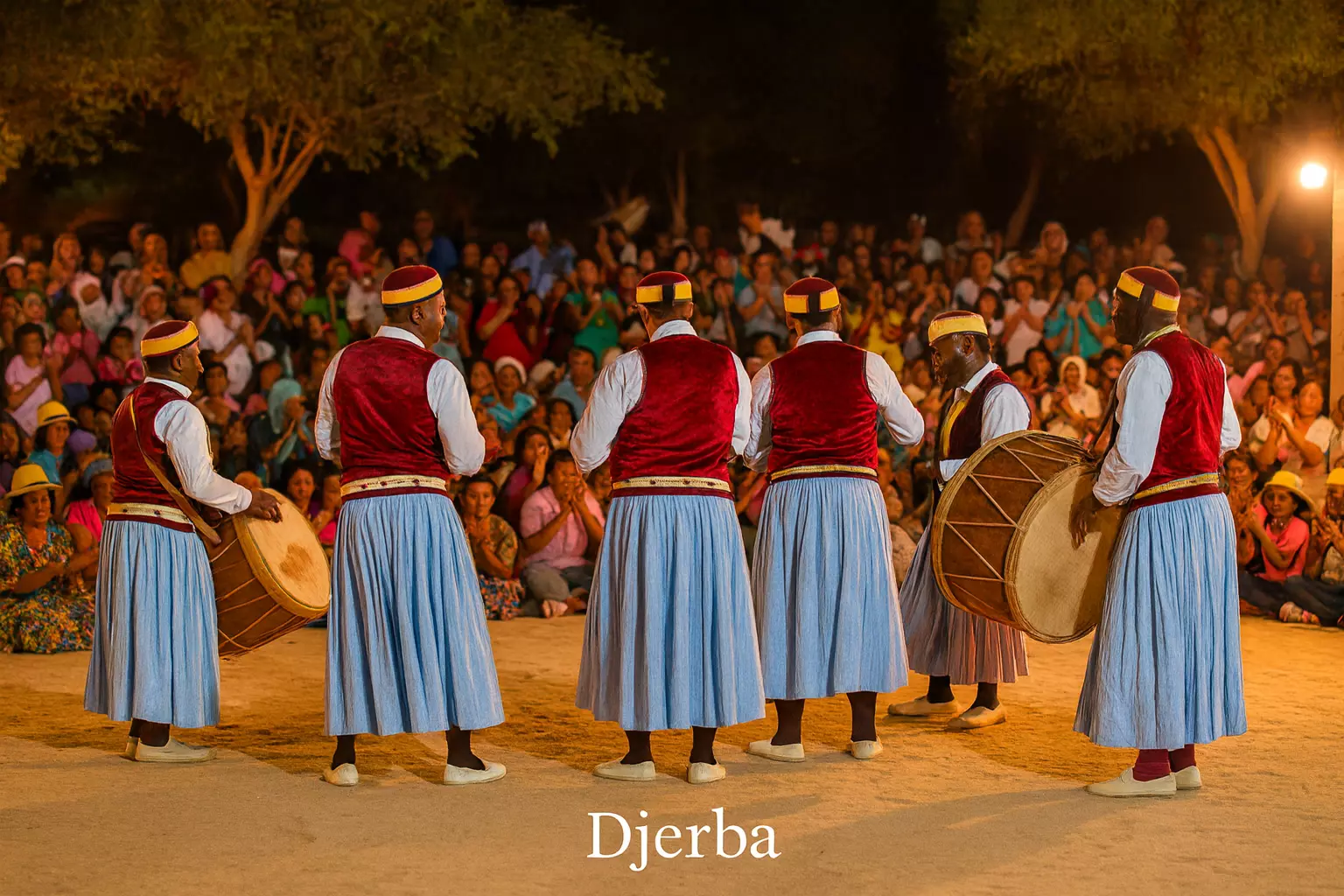The Vibrant Musical Traditions of Djerba: A Melodic Journey Through Tunisia’s Island of Dreams
Introduction: The Heartbeat of Djerba
Djerba, often referred to as the “Island of Dreams”, is famed for its stunning Mediterranean beaches, rich history, and eclectic culture. Yet, among its many treasures, the Musical Traditions of Djerba stand out as a living testament to the island’s unique heritage. Here, music is not merely entertainment; it is a vital part of daily life, religious expression, and community celebration. For travelers passionate about immersive cultural experiences, exploring the Musical Traditions of Djerba offers a harmonious gateway into the soul of this enchanting Tunisian island.
Ancient Roots: The Origins of Djerba’s Musical Landscape
The Musical Traditions of Djerba trace their origins to a tapestry of influences. From Berber, Arab, African, Andalusian, and Jewish communities, the island’s music reflects centuries of migration, trade, and coexistence. Traditional Djerban music often features hauntingly beautiful melodies and hypnotic rhythms played on instruments like the oud (lute), mezoued (bagpipe), ney (reed flute), and traditional drums such as the bendir and darbouka.
Music in Djerba is intertwined with every aspect of life, from sacred rituals to festive celebrations. The island’s distinctive soundscape is a testament to its role as a crossroads of civilizations, where each new arrival brought their own musical flavor, enriching the local culture.
Folk Music and Dance: Celebrating Life, Love, and Community
One of the most captivating aspects of the Musical Traditions of Djerba is its vibrant folk music, often accompanied by energetic dance. The mezwed and stambeli traditions are particularly prominent. Mezwed is characterized by its lively rhythms and soulful lyrics, often performed at weddings and local fêtes. The stambeli tradition, rooted in sub-Saharan African spiritual practices, uses music and dance as a form of healing and community bonding.
Djerban folk music is more than entertainment; it is a communal experience. During major festivals such as El Ghriba pilgrimage or the annual olive harvest, locals and visitors alike are swept up in the rhythms of drums, clapping hands, and spontaneous dancing. The contagious joy and unity found in these gatherings embody the welcoming spirit of Djerba.
The Jewish Musical Heritage of Djerba
Djerba is home to one of the oldest Jewish communities in the world, and their influence resonates deeply within the island’s musical traditions. The Musical Traditions of Djerba are enriched by Jewish liturgical songs, known as piyutim, performed during religious ceremonies and at the famed El Ghriba Synagogue. These sacred melodies, often sung in Hebrew and Judeo-Arabic, blend seamlessly with North African musical modes, creating an evocative spiritual soundscape.
During the annual El Ghriba pilgrimage, music and song become central to the festivities, symbolizing hope, resilience, and the enduring bond of the Djerban Jewish community. For visitors, experiencing these traditions firsthand is a rare and moving privilege.
Modern Echoes: Djerba’s Contemporary Music Scene
While the Musical Traditions of Djerba are deeply rooted in history, the island’s contemporary artists are reinventing the genre, fusing traditional sounds with modern influences. Young musicians blend malouf (Andalusian classical music) with jazz, reggae, and electronic beats, creating a dynamic and evolving musical landscape.
Local festivals such as the Djerba Fest and summer concerts on the beach attract artists from across Tunisia and beyond, offering a platform for innovation while honoring tradition. For travelers, this is the perfect opportunity to experience the island’s musical evolution up close, from open-air concerts to intimate gatherings in local cafes.
Where to Experience the Musical Traditions of Djerba

To truly appreciate the Musical Traditions of Djerba, visitors are encouraged to seek out live performances in various settings:
- Medina of Houmt Souk: The island’s capital teems with music, from impromptu street performances to organized concerts in historic courtyards.
- El Ghriba Synagogue: Visit during the annual pilgrimage for a unique immersion into Jewish liturgical music.
- Traditional Weddings: With some luck and local connections, you might be invited to a Djerban celebration, a joyous explosion of music and dance.
- Local Festivals: Events like Djerba Fest and the Festival of Ulysses showcase both traditional and contemporary acts.
- Cafés and Cultural Centers: Many venues host regular performances, providing an authentic taste of Djerban music in an intimate setting.
Preserving Djerba’s Musical Heritage
As global influences grow, local organizations and passionate musicians are working tirelessly to preserve the Musical Traditions of Djerba for future generations. Music schools, cultural associations, and community initiatives are dedicated to teaching traditional instruments, songs, and dances to young Djerbans.
For visitors, supporting these efforts—by attending performances, buying local music, or participating in workshops—means contributing to the preservation of a precious cultural legacy.
FAQ: Musical Traditions of Djerba
What are the main musical instruments used in the Musical Traditions of Djerba?
Traditional Djerban music features instruments such as the oud (lute), mezoued (Tunisian bagpipe), ney (reed flute), bendir (frame drum), and darbouka (goblet drum). These create the unique soundscape that defines the Musical Traditions of Djerba.
Can visitors experience live traditional music in Djerba?
Absolutely! The best places to experience the Musical Traditions of Djerba are local festivals, the medina of Houmt Souk, cultural centers, and even some open-air beachfront concerts. With a bit of luck, you might also witness music at a traditional wedding or family celebration.
How do the Musical Traditions of Djerba reflect the island’s diverse heritage?
The Musical Traditions of Djerba are a blend of Berber, Arab, African, Andalusian, and Jewish influences. This diversity is evident in the variety of musical styles, instruments, rhythms, and languages, making Djerba’s music a true reflection of its multicultural history.
The Musical Traditions of Djerba offer an unforgettable journey through time, culture, and emotion. Whether you’re a music lover, a history buff, or simply a curious traveler, let the melodies of Djerba guide you to the heart of Tunisia’s island of dreams. For more travel inspiration and insider tips, keep exploring DjerbaInn.com—your gateway to authentic Djerban experiences.
